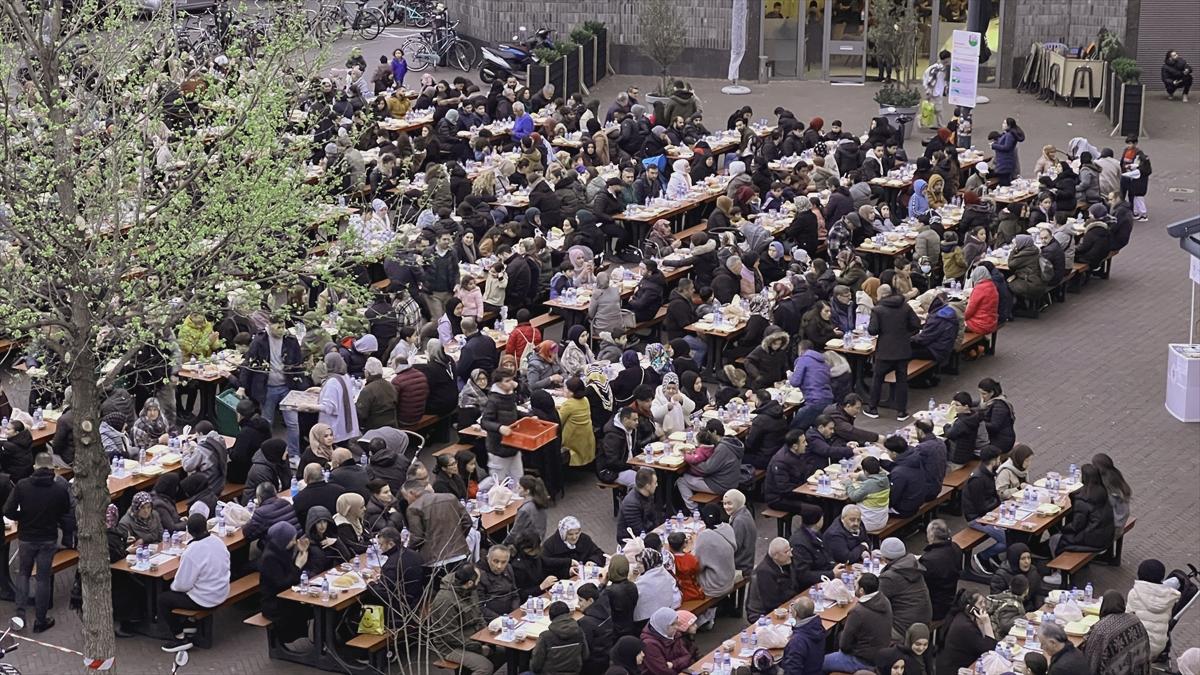The philosophical foundations of fasting can be traced back to various religious and cultural traditions. It is possible to argue that fasting practices in Abrahamic religions share some similarities with the ideas of the ancient Greek philosopher, Plato. Plato believed that the body and its desires were obstacles to the pursuit of truth and wisdom, and that the soul could only achieve its highest potential by detaching itself from material pleasures and focusing on spiritual matters. He advocated for ascetic practices such as fasting, as a means of purifying the soul and preparing it for the contemplation of divine realities.
Similarly, in the Abrahamic faiths, fasting is often viewed as a means of spiritual purification and discipline, and a way to overcome the temptations of the flesh and focus on the divine. By abstaining from food, drink, and other physical needs for a period of time, individuals are encouraged to cultivate self-control, self-reflection, humility, and compassion, and to develop a deeper connection with the divine.
Fasting in Islamic Philosophy
In the context of Islamic philosophy, the practice of fasting during the month of Ramadan is considered a means of achieving taqwa (God-consciousness) and developing self-control, humility, and compassion. The Qur'an states that fasting has been prescribed for believers in order to "attain piety" and purify their souls (2:183). Fasting is also seen as a way to empathize with the poor and needy, and to increase one's gratitude and appreciation for the blessings of life.
One of the most influential philosophers in the Islamic tradition, Al-Farabi, wrote extensively on the virtues of fasting and its role in the development of moral character. He argued that fasting helps to strengthen the willpower and overcome the desires of the lower self (nafs), which can lead to selfishness, greed, and injustice. By practicing self-denial and self-discipline, one can cultivate a sense of detachment from worldly pleasures and a deeper connection with the divine.
 Self Made Man, Bobbie Carlyle
Self Made Man, Bobbie Carlyle
Self Made Man, Bobbie Carlyle
It can be argued that by encouraging individuals to be mindful of their consumption habits and reduce wastage, fasting promotes values such as moderation, self-control, and discipline, which may lead to more environmentally conscious behavior. Therefore, fasting has the potential to serve as a means of both spiritual and environmental growth.
Lived Experiences of Ramadan
A focus solely on intellectual history can overlook the lived experiences of everyday religion. Therefore, here, I would like to offer some preliminary observations on how Muslims in the Netherlands practice Ramadan in their daily lives based on my ongoing research, and I hope to share more detailed findings in the near future.
Ramadan is the most widely participated religious practice among Muslims. Those who may neglect other religious practices often prioritize fasting during this holy month. In my previous study on Turkish- Dutch Muslims, I found that participation in fasting during Ramadan reached up to 70%. During Ramadan, there is a significant increase in social solidarity, and people give more charity and zakat to those in need. Mosques and other Islamic institutions contribute to this social solidarity by organizing large-scale iftar meals. However, the use of single-use plastic utensils during iftar meals organized by mosques and other Islamic institutions has increased in recent years, leading to concerns about environmental sustainability. Additionally, excess food is sometimes prepared for these meals due to the uncertain number of participants, which can lead to food waste and contribute to further environmental degradation.
 1300-person street iftar organized by the Ulu Mosque, affiliated with the Netherlands Diyanet Foundation in 2022.
1300-person street iftar organized by the Ulu Mosque, affiliated with the Netherlands Diyanet Foundation in 2022.
Kitchen expenses also increase during Ramadan. While fasting restricts individuals to only two meals a day (iftar and suhoor), our initial observations indicate that 7 out of 10 people report an increase in kitchen expenses during Ramadan, while 3 report no change. Furthermore, the number of dishes served during iftar meals often increases significantly, with the typical 3-4 dishes being expanded to 5-7 dishes, including extra salads, desserts, and other items. This can further contribute to food waste and excessive consumption during Ramadan. Additionally, gatherings for iftar meals with extended family and friends also contribute to the increase in food consumption during Ramadan. This increased food consumption leads to a significant increase in energy production, as more time is spent in the kitchen. 8 out of 10 people report spending significantly more time in the kitchen during Ramadan.
Fasting during Ramadan involves abstaining from food and drink for an average of 14-15 hours between suhoor and iftar. However, the evening meal during Ramadan can be a time of overindulgence, with people consuming a wider variety and larger quantities of food than they normally would. This can lead to overconsumption of simple carbohydrates and other foods during the first meal after breaking the fast, potentially leading to weight gain. Unfortunately, despite the intended purpose of this month, weight gain has become a common issue during Ramadan, with 3 out of 10 people reporting facing this problem.
As part of our research, we conducted interviews with market owners in The Hague, where more than 50% of the customer base is Muslim, to explore how Muslim consumers' purchasing habits are reflected in sales. Based on the information gathered from these interviews, during the first week of Ramadan, there was an average increase of 70% in dry food sales compared to other months, followed by a 50% increase in meat products. The consumption of foods such as grapes and watermelon also saw a 50% increase compared to other months. The most significant increase was reported for dates, with sales increasing up to five times their usual amount. The initial massive increase during the first week of Ramadan decreased to an average of 20% increase in general by the third week but rose again before Eid al-Fitr (an Islamic festival that marks the end of Ramadan). It was also reported that there was a significant increase of up to 100% in the sales of meat products before the end of Ramadan.
In light of our observations and the new information gathered from interviews with market owners, it appears that the original purpose of Ramadan to promote a simpler way of life and reduce food consumption is not being fully achieved. Despite the increase in social solidarity and charitable giving during this time, there is still a significant increase in wastefulness and consumption. This goes against the intended purpose of the holy month and raises concerns about sustainability and environmental impact. So, it is important to critically examine the cultural practices surrounding Ramadan.
Reflections for Itikaf

Contrary to what Farabi claimed, fasting in this way does not actually help to strengthen willpower and overcome the desires of the lower self. Instead, it only serves to delay those desires until the evening. Unfortunately, I do not believe that the articles written on what Muslims can do to combat climate change during Ramadan, which are widely published during this month, have a significant impact. To repent for a mistake, a believer must first recognize and acknowledge that their actions were wrong and constituted a sin. However, in the context of Ramadan, many Muslims may not realize that their actions, such as wastefulness go against the spirit of the holy month. As a result, we may not feel the need to repent for these actions.
One of the main reasons for this is that Islam in general, and Ramadan in particular, are often approached at a legal level, neglecting their ethical goals. To illustrate this, let me quote the renowned Islamic philosopher and theologian Al-Ghazali, who lived in the 11th century, from his book "Revival of Religious Sciences" (Ihya Ulum Al-Din), in which he defines fasting as follows:
The fasting of the general public (ʿawāmm) involves refraining from satisfying the appetite of the stomach and the appetite for sex. The fasting of the select few (khawāṣṣ) is to keep the ears, the eyes, the tongue, and hands, and the feet as well as the other senses free from sin.
One possible reason for the use of the terms "general public" and "select few" in Al-Ghazali's definition of fasting is to encourage the public to adopt the ethical principles of the select few, in order to become more elite Muslims themselves. In other words, he aimed to show that the prescriptions of the Sharīʿa can form the foundation of a meaningful and ethical life when combined with the insights of the Sufis. Therefore, for Al-Ghazali, Sufism and spirituality were important as moral forces, both for producing moral character and for deepening the understanding of the Sharīʿa.
Nowadays, Ramadan is often reduced to a purely physical and legalistic practice lacking spiritual depth, and making it difficult for Muslims to develop sufficient sensitivity to nature, the environment, and the growing problem of climate change. As we approach the last ten days of Ramadan, during which Itikaf (a period of seclusion for spiritual self-reflection and contemplation) is observed, Muslims have the opportunity to reflect on fundamental questions and reconsider the purpose of Ramadan and fasting, consider their ethical responsibilities as individuals within this framework, and question whether wasting breaks the fast.